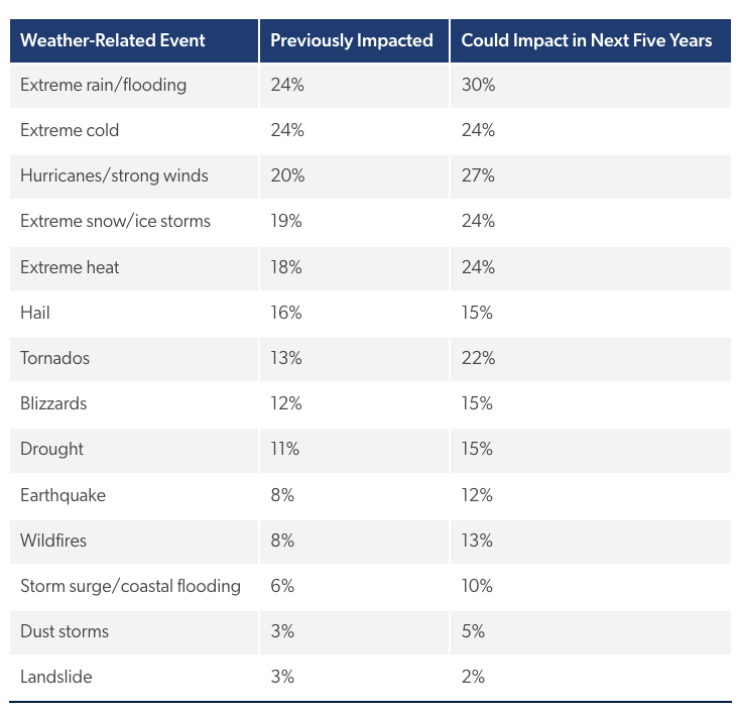When severe weather events occur, they may be powerful enough to destabilize infrastructure or destroy homes. People are resilient, but a Freddie Mac survey showed a large percentage are concerned enough by severe weather to consider moving if it becomes more frequent in their area.
In a recent Freddie Mac Housing Outlook Pulse survey, we sought to gauge the public's level of concern about severe weather-related events impacting their homes. For this survey, we defined "severe weather-related events" as flooding, wildfires, drought, extreme precipitation and other similar events.
According to the survey, 48% of respondents are extremely or somewhat concerned about severe weather-related events affecting their home within the next five years.
In fact, a majority of respondents (56%) would be extremely or somewhat likely to consider moving if severe weather-related events became more frequent around their home. This could create economic challenges in areas more at risk for storms or natural disasters.
Which weather events are the most concerning?
Extreme weather events come in different forms, and survey respondents identified both which events have already disrupted their daily lives and those they are most concerned about in the next five years.

If the event is serious enough, the next hurdle homeowners and renters must deal with is the recovery, financially and otherwise. Survey respondents identified their primary concerns if a severe weather-related event were to occur, which included the following:
- Losing my home: 18%
- Paying for repairs: 15%
- Finding a temporary place to live: 11%
- Losing possessions/items in my home: 11%
- Finding a new permanent home: 10%
Severe weather can place financial and emotional strain on homeowners. If the frequency and severity of these events continue, it may cause many homeowners to reconsider their housing situation entirely.
Freddie Mac's Market Insights team partners with Heart+Mind Strategies to field its housing outlook pulse survey. This survey, conducted online Nov. 11-22, 2021, included 1,126 interviews. Quotas were used to ensure a representative population of age, gender, ethnicity and region.






